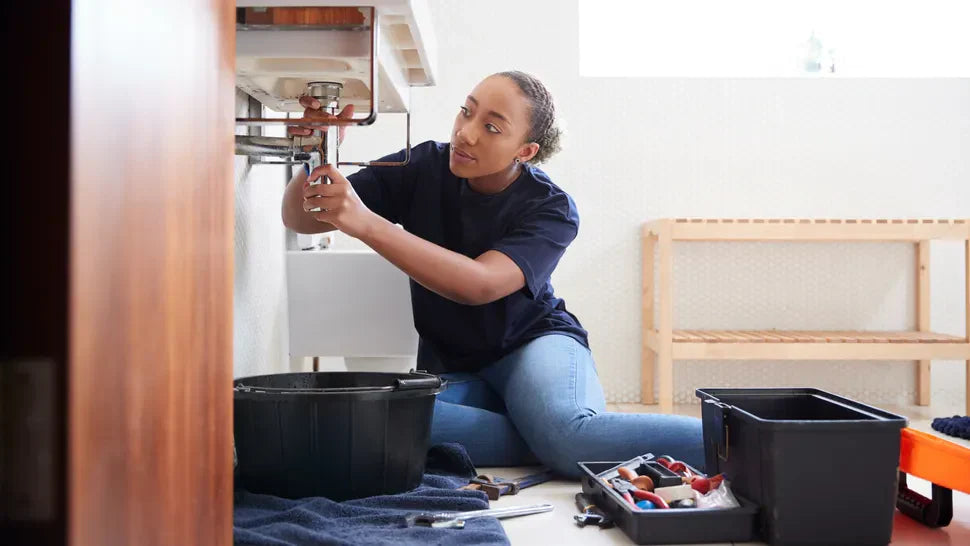
Bathroom DIY: What Can (and Should) You Tackle Yourself?
Share
DIY Projects You Can (and Should) Consider:
-
Painting:
- Why it's DIY-friendly: Painting is a classic DIY project, and bathrooms are no exception.
- Key considerations: Use high-quality, moisture-resistant paint specifically formulated for bathrooms. This prevents mold and mildew growth caused by high humidity.
- Beyond walls: Explore painting tiles for a fresh look.
-
Replacing a Shower Mixer Bar:
- Why it's DIY-friendly: Relatively straightforward if you're comfortable with basic plumbing.
- Key considerations: Shut off the water supply before starting. Ensure the new bar has the correct dimensions and that the water inlet/outlet connections are secure.
- Bonus: Replace the shower head for an easy upgrade.
-
Installing Shelves:
- Why it's DIY-friendly: A fundamental DIY skill.
- Key considerations: Use a stud finder to locate wall studs and avoid plumbing/electrical lines. For tiled walls, use a diamond-tipped drill bit to prevent cracking.
-
Installing a Shower Screen:
- Why it's DIY-friendly: A significant upgrade that doesn't require advanced skills.
- Key considerations: Use a diamond-tipped drill bit for tiles and a metal bit for PVC shower panels. Seal rawl plugs with silicone to ensure watertightness.
-
Renewing Grout and Sealant:
- Why it's DIY-friendly: Improves the look and hygiene of your bathroom.
- Key considerations: Use specialized grout and sealant removal tools. Ensure all old sealant is completely removed before applying new.
-
Regrouting Tiles:
- Why it's DIY-friendly: A budget-friendly way to refresh tired-looking tiles.
- Key considerations: Requires patience and attention to detail.
Projects Best Left to Professionals:
-
Tiling: While achievable for DIYers, tiling requires skill and precision. If you're aiming for a professional-quality finish, especially in complex areas (corners, trims, etc.), consider hiring a professional tiler.
-
Electrical Work (including Underfloor Heating): Any electrical work involving wiring or connections should be handled by a qualified electrician to ensure safety and compliance with regulations.
Important Notes:
- Safety First: Always prioritize safety. Wear appropriate safety gear (gloves, goggles) and ensure proper ventilation when working with chemicals.
- Plan Ahead: Before starting any project, create a detailed plan, gather the necessary tools and materials, and consider the potential challenges.
- Don't Hesitate to Ask for Help: If you encounter any difficulties or feel unsure about any aspect of the project, don't hesitate to seek advice from a qualified professional.
By carefully considering your skill level and the scope of the project, you can successfully tackle many bathroom DIY projects, enhancing your bathroom's style and functionality while saving on renovation costs.
Disclaimer: This article provides general guidance. Always refer to manufacturer instructions and consult with professionals when necessary.
